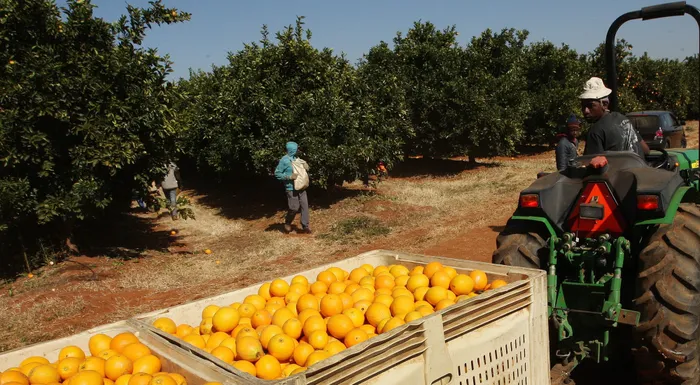South African citrus industry calls for Ramaphosa's intervention amid looming US tariff hike

The Citrus Growers' Association has appealed to President Cyril Ramaphosa to intervene in critical trade negotiations with the US, as a steep tariff hike threatens the livelihoods of South African citrus growers and rural economies.
Image: Independent Newspapers Archives
The Citrus Growers' Association of Southern Africa (CGA) has issued an urgent appeal to President Cyril Ramaphosa to intervene in trade negotiations with the United States ahead of the 1 August deadline, when a steep tariff hike on South African citrus is set to take effect.
From Friday, US import duties on South African citrus will increase from 10% to 30%, a move the CGA warns will have severe consequences for rural economies in the Northern and Western Cape provinces, which export approximately seven million cartons of citrus annually to the US market.
“This week, with the tariff deadline on Friday, is one of great anxiety for the citrus growers in the Western and Northern Cape,” said CGA CEO, Dr Boitshoko Ntshabele.
“Should we not be able to secure a favourable trade deal, or the concession for fresh produce, local job losses before the next season will be a certainty.”
In a letter to the President, the CGA requested that the government urgently secure either a general extension of the current tariff or a specific exemption for seasonal fresh produce, citing the perishable nature of citrus and the economic impact of fruit left unsold mid-season.
Dr Ntshabele stressed that South African citrus exports do not compete with American growers, as they supply fruit during the US off-season. “Citrus, as a source of nutrition, also helps to keep Americans healthy,” he added.
CGA Chairperson Gerrit van der Merwe, a grower based in Citrusdal, warned that a 30% tariff would damage the economic backbone of his community.
“Citrus forms the economic heart of the area. Not just farmers and farm workers will feel the impact, local businesses and even the funding of social support programmes will be affected as well. The social fabric of some rural towns in the Western and Northern Cape is being threatened,” said Van der Merwe.
He further cautioned that growers may be forced to abandon between 500 and 1,000 hectares of orchards due to unprofitability under the higher tariff regime.
The CGA also addressed calls for market diversification, stating that citrus cannot easily be rerouted to alternative markets due to strict phytosanitary and market-specific requirements. The association warned that flooding other markets with diverted citrus could lead to price collapses, further hurting the industry.
“The citrus industry has the potential to create 100,000 additional jobs by 2032 because of new plantings,” the CGA said in its letter. “But for this to realise, we require the expansion of every market including the US, China, India, the European Union and others.”
While acknowledging progress in trade negotiations, the CGA urged the Presidency to intensify direct diplomatic engagement with the US to avoid economic fallout.
Related Topics: